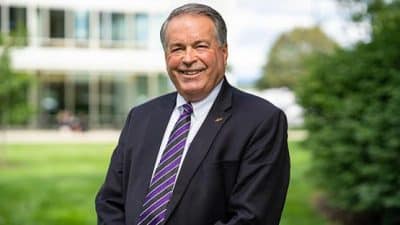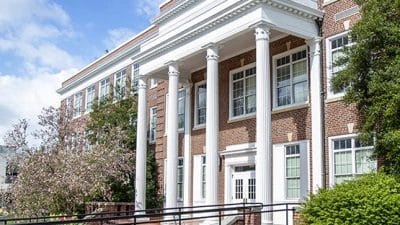
For Augusta, this means arrests and jail time, with four people put under duress in 2016 following unlicensed lottery sales. In a state where gamblers can visit Indian reservation casinos, it seems a little extreme to enforce gambling so strictly, especially when other states are reaping the benefits associated with a more liberal approach to gambling.
Las Vegas and Atlantic City are anomalies which are deeply rooted in the history of gambling in the US, but Michigan, Delaware and Pennsylvania are all well on the way to creating a regulated and controlled gaming industry that will open up new tax generation and employment opportunities. So the big question is why Georgia, and especially Augusta, isn’t getting a piece of the action?
Augusta’s prominence
Detroit is still struggling with bankruptcy, unemployment and a severe lack of public funding. To combat this, 3 major casinos are allowed to operate in the downtown area, generating hundreds of millions of dollar for the state of Michigan every year. This tax funding is pumped straight back into the local community, promoting regeneration and also creating new jobs.
Augusta isn’t in the same situation as Detroit (in fact it’s quite the opposite), but the opportunity that exists is a strong one. Detroit isn’t known as a holiday hotspot, the weather isn’t great all year around and to be brutally honest, rust belt visitors will take their tourism dollars to Chicago or across the border to Toronto. For Augusta, visitors from the coast, Atlanta, Charlotte and even the North East would be more than enough to turn Augusta into a premier gambling destination.
Naturally, the Masters tournaments is the big opportunity. Thousands flock to Augusta every year to see the world’s best, spending upwards of $200 million in the process. Imagine if these visitors were hosted in casino resorts designed to generate even more cash that could be used for public services and improvements across the city, instead of placed in the pockets of private organisations and international hotel chains that don’t have Augusta’s economy at the forefront of their operations. Sports gambling is an underground industry worth $700 billion and it would be naïve to think that no gambling takes place at all during a masters tournament, so why not tax it?
The way online gambling is performing in other states and countries is definitely a point for consideration too. In the UK, online ambling now makes up 33% of the £13.8 billion industry, growing year on year and allowing online casino operators and bookmakers to become some of the biggest earners and employers. Wink Bingo, one of the UK’s market leading online bingo providers, has seen record growth, allowing them to build a trusted website that benefits from the laws on gambling in the UK. As well as an improved offering thanks to reinvestment, Wink is also creating jobs and contributing to the UK’s economy via tax, something that both cities and states could be and are doing in states like Delaware and Pennsylvania.
Trump’s key role
The president has a background in casinos. After raising millions of dollars in capital through the sales of junk bonds, Trump basically transformed Atlantic City, New Jersey back in the 1980s, constructing and operating several casinos and plastering the Trump brand onto the city. Although the casinos he operated weren’t a success, it has left a lasting legacy that has turned Atlantic City into a gambling hotspot on the East coast. Although legalised gambling at a national level is on the cards, we’re yet to see an official stance from the president’s office, possibly due to the other fires he is busy fighting both internally and externally. What is certain however is the fact that any changes to gambling laws will be a drawn-out process, with conservative law makers, judges and of course local government need to align, a process which will not be as straightforward as many gaming companies and gamblers will be hoping for.
Augusta would also be impacted greatly. Gambling in the US is starting to shake its dark past, and regulated gambling would certainly be free from ties with organised crime. If Augusta were to become a casino hotspot, the dynamic of the city could change completely, something that many residents wouldn’t be in favour of. New visitors may bring additional revenues, but it may all of a sudden become more difficult to get to work in traffic, or even book a restaurant.
The trade-off between tax revenue and additional tourism problems would need to be considered in depth, but it still feels that taking advantage of golf visitors is a no brainer. On-site bookmakers or even concession stands that offer odds could be a simple solution that would bump up golf revenues considerably.
With the president’s official decision to come and some guaranteed backlash from lawmakers in Georgia if the US does decide to legalise gambling at a national level however, it may still be some time before we can enjoy gambling without having to leave Augusta.










